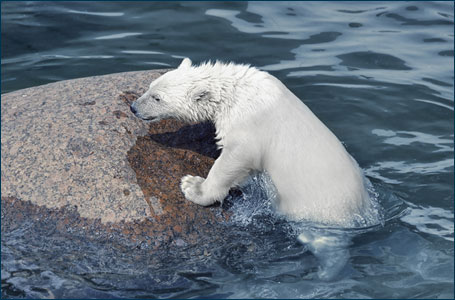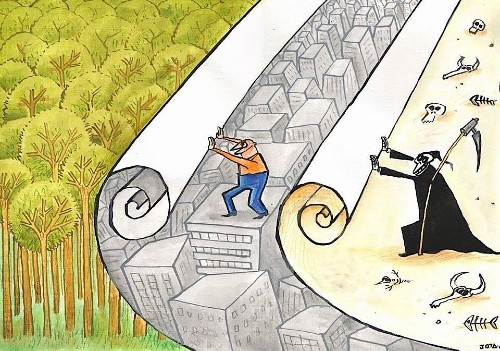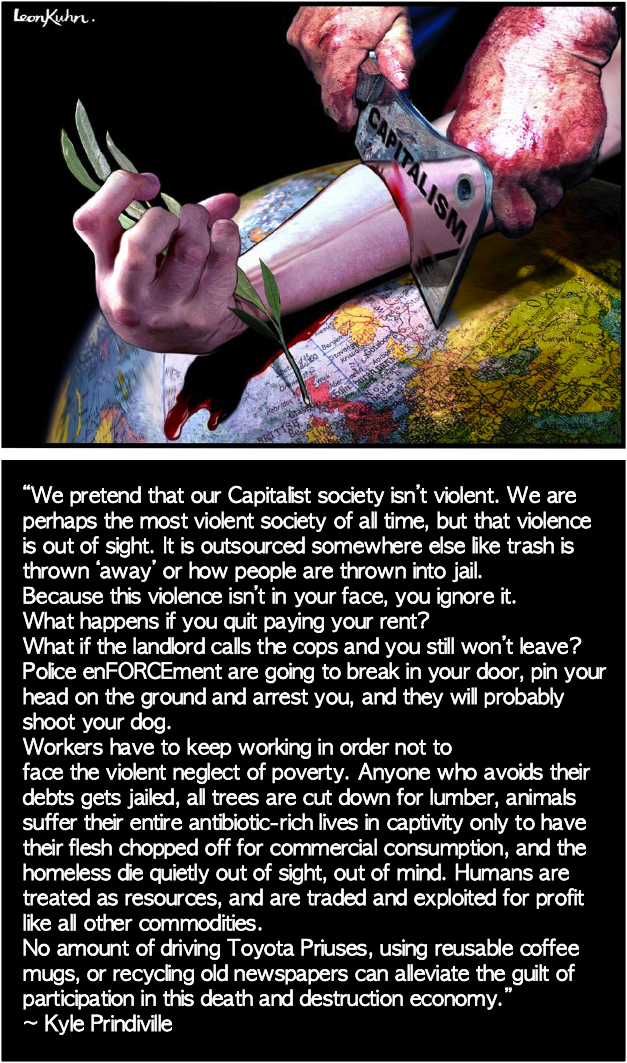To complement my previous post yesterday, I have dug out, brushed off and dusted (but not altered) something I wrote just over 7 years ago. Surprisingly, or not surprisingly to me, since I mostly try to write stuff that will not easily date over time, it still holds good after 7 years. Does that make it a classic in an age of throw-away lines and disposable everything else? Well, I am not looking for plaudits, but I can still see value and relevance in what it says, in some ways even more so that when it was first written. Judge for yourself.
Final paragraph of shared post: One day, soon, I expect to see a vindication of my feeble attempts. May they have assisted someone, somewhere, to be more ready for that day than they otherwise may have been.
"That day", that "One day, soon", may not have arrived yet, but if you check carefully you should be able to feel it coming.
Original post: https://notsomethingelse.com/2014/04/02/i-am-an-abject-failure/, repeated below.
I am an abject failure.
I do not say this from some depressed state, some suicidal thought, some tendency to self-flagellate. It is not some morbid attempt to heap shit on myself.
It is simply that I recognise my own limitations, my unfulfilled hopes and desires. It is an acknowledgement that my vision is greater than my capability or strength to describe it or to bring it to a state of realisation. It is an acceptance that the task is too great and I am not among those great persons who have taken on insurmountable tasks and somehow accomplished them.
Taking a stand on anything that lays outside of the normal, restrictive and increasingly shrinking thought patterns of a society intent on pursuing fatuous and frivolous goals of personal happiness, comfort and wealth, carries consequent risk of being perceived as raving lunacy, perversion, or some dangerous threat to the status quo, which should be extinguished or removed from sight to avoid unnecessary disturbance to the flow.
To these charges I must plead guilty. I must also from time to time re-evaluate my reasons for taking a stand on ideas that are not generally held but which I see as being of great importance for me and all humanity. Does ridicule or ignorance (in the sense of being ignored) bother or hurt me or sway my views? Am I expecting to achieve some sort of success? Or do I do this simply because it seems the right thing to do, whatever the consequences? Should I continue, or just sit back quietly and watch? Should I respond to my feelings, or suppress them? Should I try to fit in, or continue to be some kind of mysterious and awkward enigma? Essentially, do I care what other people think of me?
I will answer only the last question here, by saying “Some, but not much.”
The dashboard here on my blog is littered with unfinished and unpublished posts that I was at some stage influenced or inflamed to begin but for some reason did not complete or felt the need to withhold from publication. Then again, so many of my aroused thoughts and so much of my accumulated knowledge never gets to the point of actually being committed to writing in the first place.
Diligently pursuing an idea or project to conclusion is quite exhausting and there is only so much that an individual person can do.
But I do what I can. Failure, or not.
What happened to bring me to this place?
Well, I guess it was a confluence of many things culminating with my reading this morning the latest article from George Monbiot, ‘Loss Adjustment’ here on the Permaculture Research Institute website.
George begins the article with a very pertinent question –
“When people say we should adapt to climate change, do they have any idea what that means?“
That is my problem. I am privileged to be among the few who do have a clear vision of what that means. To take just one aspect, simply stated, it means that even with the best will in the world, climate change is not something that can be adapted to whilst still retaining a semblance of modern life.
How on Earth do you go about explaining that concept to people in particular and the world in general? How? Even if people and the world wanted to know, the message is not something that they would willingly and wholeheartedly accept. The concept itself leads to a turmoil of world upheaval such as no-one would ever have contemplated in their wildest dreams or nightmares.
That in essence is my dilemma.
George quotes the great conservationist Aldo Leopold, as I also did, somewhere, recently –
“An ecologist must either harden his shell and make believe that the consequences of science are none of his business, or he must be the doctor who sees the marks of death in a community that believes itself well and does not want to be told otherwise.”
George further partially quotes Leopold in saying that –
“One of the penalties of an ecological education is that one lives alone in a world of wounds.“
I also feel something of that world of wounds, that agony, that torment, of watching on a daily basis the inevitable events not only of climate collapse but ecological collapse, economic collapse and societal collapse, playing out on the world stage in front of my very eyes. Expecting soon to add to that exposure the dreadful, awful, sight of population collapse as a direct or indirect result of those events.
Sometimes the enormity of it all becomes quite overwhelming and one feels infinitesimally small and insignificant in comparison.
 Climate Change Adaptation?
Climate Change Adaptation?
Is there really nothing we can do?
It is true that we can do some tinkering around the edges. At least the wealthy nations may be able to do that. But what about everyone else?
There is the possibility of constructing a few sea walls, strengthening structures, making homes more ‘climate resilient’, rolling out more ‘renewables’, among other things that may have been placed under consideration. However, all this activity displays is a basic inability to grasp the parameters of what climate change means for our world.
Whatever adaptation activity is undertaken, there remains the dual-headed dilemma of 1) do we attempt to stop or reduce the human activity feeding climate change first, or at the same time? And 2) if we do either one of those things, or even if we don’t, where is all the wealth and physical resources going to come from to enable us to effectively adapt current systems, if effective adaptation were in fact possible?
Take one example. Two thirds of all the world’s cities with 5 million or more inhabitants, lay in coastal regions that will be effected by sea level rise and will need to be relocated at some stage, whether that be in the next few years or before the end of the century. Can you imagine the enormity of that task? Abandoning land and infrastructure, re-housing the population, perhaps several billion people, and rebuilding the very valuable and costly infrastructure on which many more people have previously relied. The potential cost is literally staggering. Another description would be ‘impossible’. There is just not the wealth and resources necessary to accomplish such a task.
Take another example. How is the world going to feed itself? Pretty much all of the global food growing regions will become incapable of producing food, either at all or in such reduced amounts as to render the total food supply grossly inadequate for even current population levels. Many of these regions are already feeling the impacts of climate change. One in eight people already have inadequate access to food. Then there is the question of more migration away from these areas with consequent loss of land and infrastructure and these ‘food bowl’ areas include much of central US, most of Australia, central Africa, southern Europe and parts of China. Desertification will become a huge issue over time and is already under way.
There is no means of adaptation to these issues. They entail a getting out and a going somewhere else. If a somewhere else can be found, is acceptable to those already living there and, importantly, is capable of sustaining the influx of additional souls. On top of that, unless this process occurs very soon while transport infrastructure is still available, for most it will be undertaken on foot, carrying whatever they can on their backs.
Does that make the picture a little clearer? Well, it is not the whole picture of course. Many other perils await, such as diminished availability of water, increased risk of disease, resource conflicts, slavery, abuse and death.
On the whole I think a policy of adaptation, in the terms that it is currently viewed, stands little chance of any success and will most likely be seen to be a complete waste of time, energy and resources in the long term. Although, building infrastructure appears to be the new flavour of the month among politicians who continue to seek means of resuscitating their ailing economies and increasing jobs. They could better spend their time dismantling the complex societal structure we have built and preparing for something much smaller and simpler. They won’t of course and future history will play out as it inevitably will as business continues as usual. Any other course of action would require them to face full on to what portends to be a very insecure and perilous period ahead.
Perceived inadequacy and failure
Reviewing these supremely important concepts causes a certain overshadowing of my feelings of inadequacy and failure to communicate them effectively.
I remain undaunted by my inadequacy and unafraid of my failure to do so.
One day, soon, I expect to see a vindication of my feeble attempts. May they have assisted someone, somewhere, to be more ready for that day than they otherwise may have been.
Author
 Bernard ("Bernie") Edwards blogs at NotSomethingElse and lives "as simply as I can, working towards having as few dependencies on the industrial system as possible" in Australia.
Bernard ("Bernie") Edwards blogs at NotSomethingElse and lives "as simply as I can, working towards having as few dependencies on the industrial system as possible" in Australia.
![]() Don't forget to feed the birds. Donate here
Don't forget to feed the birds. Donate here







